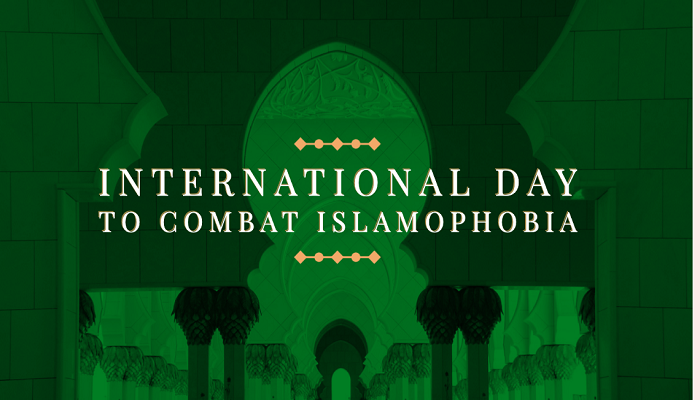ISLAMABAD: International Day to Combat Islamophobia is being observed today (Friday). The United Nations General Assembly will hold the 62nd plenary in this regard.
Pakistan’s Permanent Representative to the United Nations, Ambassador Munir Akram will deliver a statement on the occasion.
The United Nations has designated March 15 as the International Day for Combating Islamophobia, following a resolution spearheaded by Pakistan. This global observance aims to address the pervasive fear, prejudice, and hostility faced by Muslims worldwide.
The resolution was introduced by Pakistan on behalf of the Organization of Islamic Cooperation (OIC). It marks the day when a gunman entered two mosques in Christchurch, New Zealand, killing 51 people and injuring 40 others.
The then Pakistan’s Prime Minister Imran Khan welcomed a decision by the United Nations General Assembly (UNGA) to approve a resolution setting March 15 as the International Day to Combat Islamophobia.
The resolution, adopted by consensus by the 193-member world body and co-sponsored by 55 mainly Muslim countries, emphasizes the right to freedom of religion and belief and recalls a 1981 resolution calling for “the elimination of all forms of intolerance and of discrimination based on religion or belief”.
Islamophobia, characterized by intolerance, discrimination, and hatred towards Muslims, has sparked division and enmity across communities. The resolution, presented to the UN General Assembly, underscores the importance of fostering tolerance and safeguarding the human rights of Muslims globally.
Crucially, the resolution emphasizes the need to dissociate terrorism from any religion or nationality, promoting a more nuanced understanding of complex geopolitical issues.
While the resolution garnered support from fifty-five countries in the General Assembly, India emerged as a prominent opponent. Critics argue that India’s stance reflects its own troubling history of extremism and violence against its Muslim population.
Muslims in India endure systemic discrimination in education, employment, and political representation, exacerbating social disparities. India’s past is marred by incidents such as the Babri Masjid massacre and various communal riots, including those in Gujarat, Muzaffarnagar, Delhi, and Haridwar.
The designation of the World Day for Combating Islamophobia marks a significant step towards addressing prejudice and promoting inclusivity on a global scale.



















